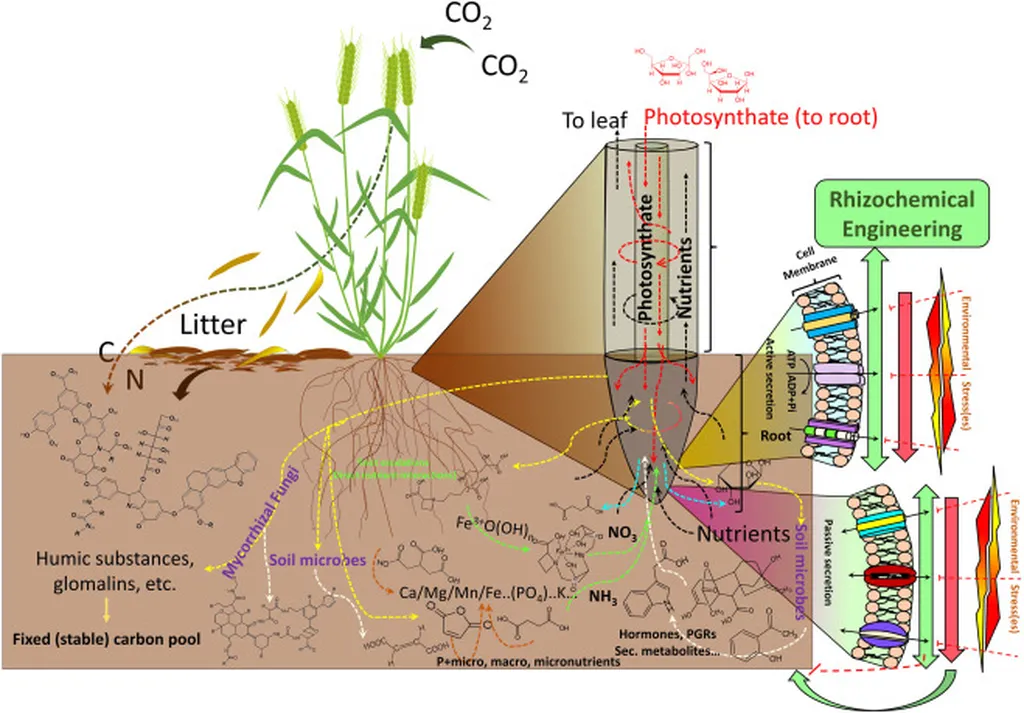In the quest for sustainable agriculture, scientists are turning their attention underground, to the complex world of root exudates and microbes. A recent study published in *PLoS Biology* (which translates to “Public Library of Science Biology”) sheds light on how these subterranean interactions could revolutionize farming practices, with significant implications for the energy sector.
Root exudates are the secret weapons of plants, a cocktail of metabolites released into the rhizosphere—the narrow region of soil influenced by root secretions and associated microorganisms. These exudates play a pivotal role in nutrient uptake and interactions between plants and microbes. According to lead author Eva Marina Stirnemann, “Understanding these interactions could unlock new strategies for sustainable farming, reducing our reliance on fertilizers and pesticides.”
The study highlights the potential of optimizing crop combinations in practices like intercropping and crop rotation. These methods have long been used by farmers, but the scientific community is only beginning to grasp the molecular intricacies that make certain combinations more beneficial than others. Stirnemann and her team delve into the molecular interplay between crops and their microbial partners, offering a roadmap for determining optimal crop combinations.
The implications for the energy sector are substantial. Sustainable agriculture practices can reduce the environmental footprint of bioenergy crops, making them more viable as a renewable energy source. By enhancing nutrient uptake and promoting beneficial plant-microbe interactions, farmers could boost crop yields without resorting to chemical inputs. This not only cuts production costs but also aligns with the growing demand for environmentally friendly energy sources.
Moreover, the study suggests that a deeper understanding of root exudation and its effects on microbes could help agriculture adapt to a changing climate. As weather patterns become more unpredictable, resilient crop systems will be crucial for food security and energy stability.
Stirnemann’s work is a call to action for researchers and farmers alike. By harnessing the power of root exudates and microbes, we can pave the way for a more sustainable and productive future in agriculture. As the study concludes, the key lies in unraveling the molecular dialogue between plants and their microbial partners, a dialogue that could hold the answers to some of our most pressing agricultural challenges.
In the words of Stirnemann, “This is not just about improving crop yields; it’s about reimagining our relationship with the land and the microbes that inhabit it.” With further research and practical application, this underground revolution could reshape the future of sustainable agriculture and the energy sector.

